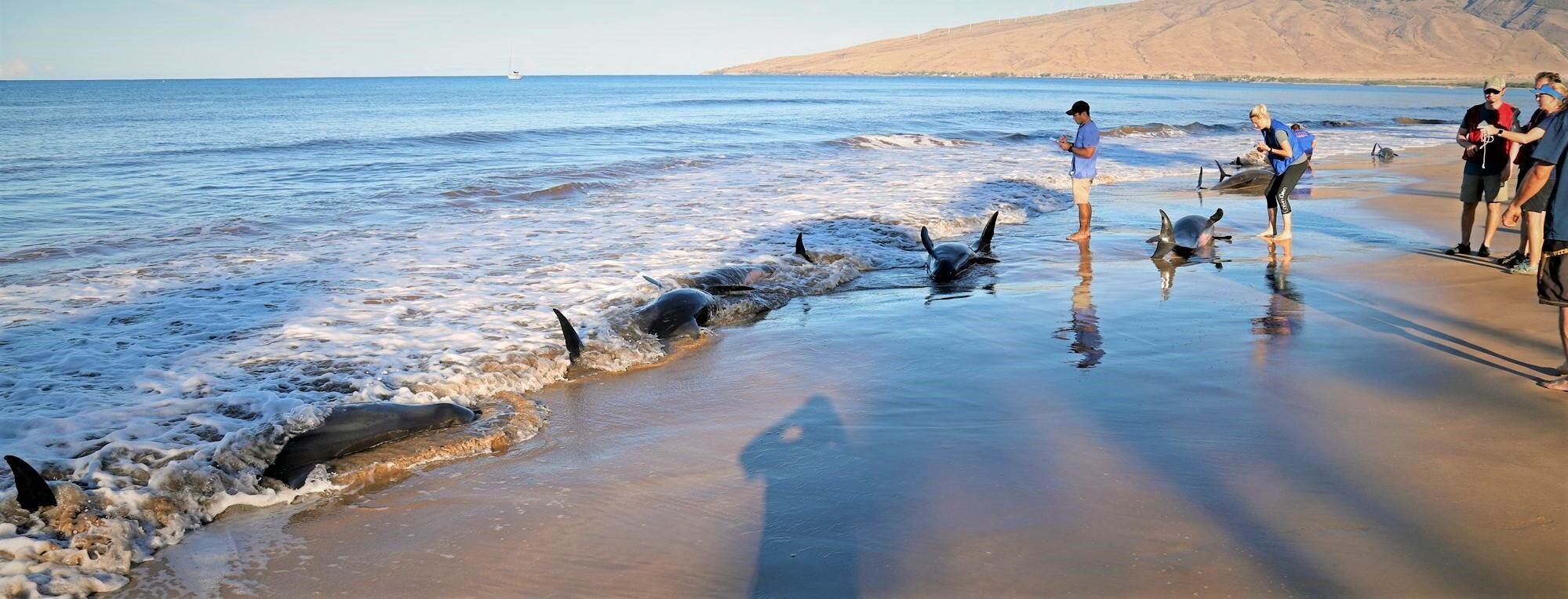
Why respond to stranded marine mammals?
A stranded marine mammal is one ashore or trapped in nearshore waters and is unable to return to its natural habitat. The stranded animal could be in distress, dying, or dead, or rarely, healthy but trapped due to changes in water depth.
Marine mammal stranding response has numerous benefits. Live animal response can help save individual sick, injured, or abandoned animals and dead animal response can sometimes assist with removing carcasses from public beaches. Both types of stranding response can help protect beachgoers and pets from potential injury and disease and can provide opportunities to educate the public about marine mammals and the ocean environment.
The benefits of stranding response go far beyond those more obvious outcomes. Stranded animals can provide researchers with information about offshore species that are not easily accessible or well-studied. Information on animal health and causes of death is essential for researchers and managers to understand and mitigate new and existing threats to marine mammals. Data collected from marine mammals can also be linked to environmental conditions, helping researchers to understand how climate change is impacting these species. Additionally, because many marine mammals swim near the same beaches and eat the same species of fish as humans, stranded marine mammals can serve as indicators of broader ocean health issues that may have human health implications.